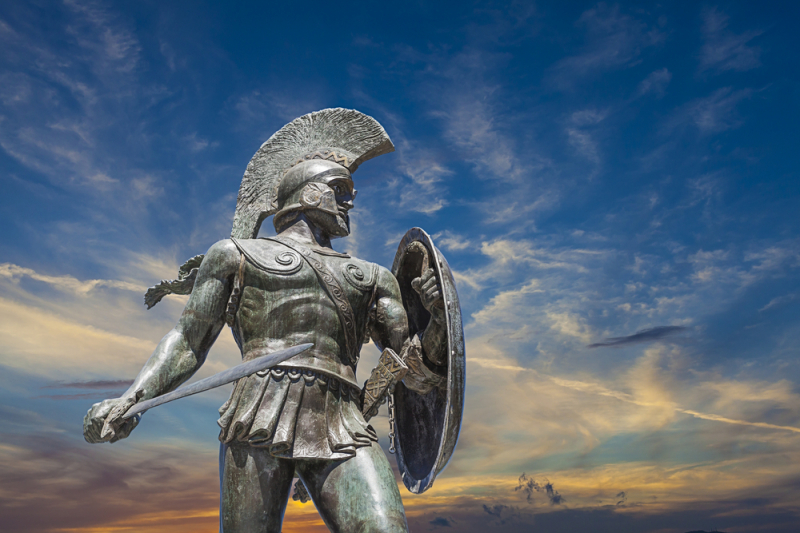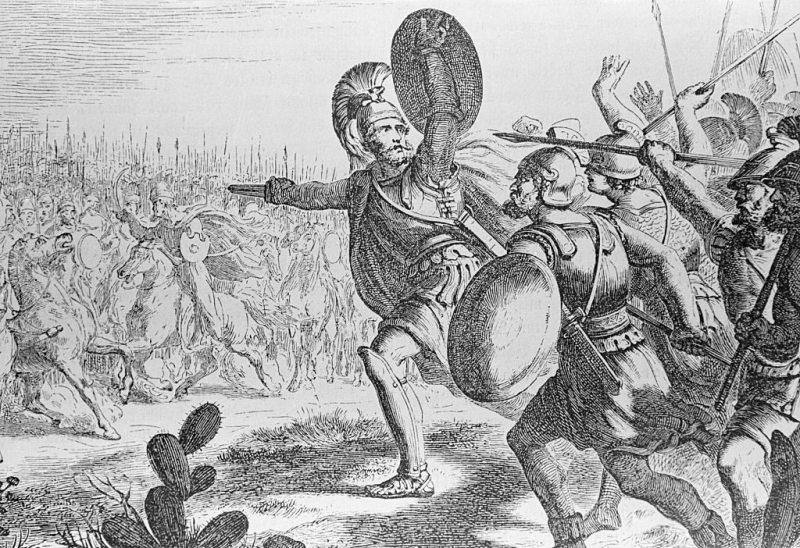Spartan King Leonidas lead the Greeks in the Battle of Thermopylae
Leonidas I was the 17th king of Sparta and the 17th of the Agiad line, a dynasty descended from the mythological demigods Heracles and Cadmus. Leonidas I was King Anaxandridas II's son. In around 489 BC, he succeeded his half-brother King Cleomenes I on the throne. King Leotychidas was his co-ruler. His son, King Pleistarchus, succeeded him.
Leonidas played an important role in the Second Greco-Persian War. Spartan King Leonidas lead the Greeks in the Battle of Thermopylae while attempting to defend the pass from the invading Persian army; he perished at the battle and became known as the leader of the 300 Spartans. While the Greeks lost this fight, the Persian invaders were driven out the following year.
Sparta consulted the Oracle at Delphi after receiving a request from the confederated Greek soldiers to assist in defending Greece against the Persian invasion. Leonidas marched out of Sparta with a small force of 1,200 men (900 helots and 300 Spartan hoplites) to meet Xerxes' army at Thermopylae, where he was reinforced by forces from other Greek city-states who threw themselves under his command to form an army of 7,000 men.
Whatever the reason for Sparta's participation of only 300 Spartiates (supported by their attendants and perhaps perioikoi auxiliaries), the total force mustered for the defense of Thermopylae's pass was between four and seven thousand Greeks. They were up against a Persian army led by Xerxes I, who had invaded Greece from the north. According to Herodotus, this army had almost two million troops; current academics consider this to be an exaggeration, with estimates ranging from 70,000 to 300,000.
Xerxes waited four days before attacking in the hope that the Greeks would scatter. Finally, on the fifth day, the Persians launched an attack. For the fifth and sixth days, Leonidas and the Greeks repelled the Persians' frontal assaults, killing around 10,000 enemy men. The Persian elite unit known as "the Immortals" was defeated, and two of Xerxes' brothers (Abrocomes and Hyperanthes) were killed in battle. On the seventh day (August 11), a Malian Greek traitor named Ephialtes led the Persian general Hydarnes to the Greeks' rear via a mountain trail. Leonidas then dispatched all Greek troops and remained with his 300 Spartans, 900 helots, 400 Thebans, and 700 Thespians. The Thespians stayed totally of their own volition, vowing not to desert Leonidas and his troops.
According to Herodotus, Leonidas sent away the remaining his warriors out of concern for their safety. The King would have thought it prudent to save those Greek forces for future battles against the Persians, but he knew the Spartans would never quit their position on the battlefield. The men that remained behind were supposed to protect their escape from the Persian cavalry. Except for the 400 Thebans, who surrendered to Xerxes without a fight, the little Greek force was attacked from both sides. After driving back the Persians four times, the Spartans recovered Leonidas' body.












